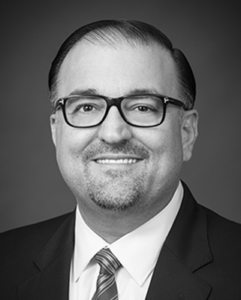Even in the best of times, burnout is common for health care workers. The pandemic — which uprooted workplace routines and turned knowns into unknowns — has only made these stressful and demanding jobs that much harder.
In the early days and months of the pandemic, the public rallied around health care workers — sporting lawn signs thanking them, donating meals to hospitals, and sending notes of appreciation. However, the public displays of support eventually waned, although the demands of caring for COVID-19 patients day in and day out did not.
Now the state is “open” for business, and hospitals are no longer overwhelmed by COVID-19 patients, but that certainly doesn’t mean everything is back to normal. After more than a year on the front lines of the pandemic, health care workers’ mental and physical health have taken a hit.
In a 2021 Medscape Report on National Physician Burnout & Suicide, 79% of the more than 12,000 physicians who responded said their burnout began before the pandemic, but the lack of personal protective equipment, difficult conditions, long hours, grief over losing patients, and watching patients’ families suffer added a layer of extreme stress and exhaustion for many.
At the same time, a March 2021 survey of 22,000 nurses by the American Nurses Foundation found that the pandemic had taken a toll on the mental health of many, particularly those early in their career. Among nurses 34 and younger, 81% reported feeling exhausted, 71% reported feeling overwhelmed, and 65% reported being anxious or unable to relax. Nurses 55 and older reported some strain on their mental health, including feeling exhausted (47%), overwhelmed (37%), or anxious or unable to relax (30%).
As we enter the post-pandemic phase, what will it look like for the health care workforce? The scars of a year-long battle with a deadly disease are likely to linger, but there are some tips from the Health Heroes Initiative and the Centers for Disease Control and Prevention for things that can be done to confront the burnout and adjust to life after the pandemic:
- Know you are not alone. The majority of health care workers experienced some increase in distress during the pandemic. Feeling these negative emotions does not mean something is “wrong” with you — it just means you are human.
- Lean on your support system. Communicate with your coworkers, supervisors, and employees about job stress, and be aware of how to access mental health resources in your workplace.
- Engage in activities you enjoy. Take time to do things that make you happy. Spend time with your family, get outside, exercise — do anything else that brings you ease.
Although the brunt of the pandemic may be behind us, it’s likely that this burnout and stress could affect even the next generation of health care workers. While hospitals take burnout very seriously and are taking steps to address this important issue, we must keep talking about it and prioritizing self-care, along with reinforcing that it’s OK to ask for help.
